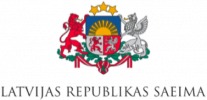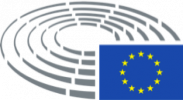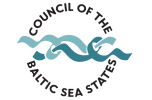On 24-25 March 2022, the Baltic parliamentarians met in Riga to discuss a wide range of topics, including supporting Ukrainian children and youth, addressing challenges for the Baltic States in the STEM field, challenges and opportunities that the UNESCO Global Convention on the Recognition of Qualifications concerning Higher Education brings as well as the implementation of the “Rail Baltica” project and recommendations of the Baltic Assembly.
During the first session meeting of the Education, Science and Culture Committee and Economics, Energy and Innovation Committee of the Baltic Assembly, the parliamentarians discussed challenges for the Baltic States in the STEM field, including supporting Ukrainian students in the Baltic States. The government representatives assured parliamentarians that there is significant support from the universities in Latvia, Estonia and Lithuania that is available for Ukrainian students that were already studying in the Baltic States before the war in Ukraine but also for Ukrainian refugees that want to continue studies and their research work.
Minister of Education and Science of Latvia Anita Muižniece informed that Latvia is providing various types of state support for the Ukrainian schoolchildren, including a lump-sum payment available for each student for teaching aids and coverage of school meals. She also informed that there is support available for the children regarding teaching and learning support as well as transition to the next school year. The Estonian and Latvian government representatives also informed about the support available to supporting Ukrainian children that have been forced to leave their homes due to the war. It could be concluded that all three countries are providing support but also searching for new and better solutions to improve the life of Ukrainian refugees and their children in the Baltic States.
Chair of the Economics, Energy and Innovation Committee Reinis Znotiņš said that he is glad to see that the Baltic States have been able to adapt to the consequences created by Russia’s invasion of Ukraine and have been able to provide the help required for Ukrainian children and youth but also researchers that have been forced to flee their country. “Our hearts and souls go to Ukrainians, and we will continue to support them him while the fight against Russia is won”, said Reinis Znotiņš.
Another topic discussed by the parliamentarians was “STEM field of the Baltic states: challenges and a way forward” where government experts shared their experience and plans of action on how to address the challenges in skills mismatch, gender disparities in the STEM field and other widespread challenges. Also, parliamentarians were introduced with good practices from the approaches and projects of the Riga Technical University, “Riga Tech Girls” and also CERN Baltic Group.
Parliamentarians also heard a status report on the UNESCO Global Convention on the Recognition of Qualifications concerning Higher Education in the Baltic states. Director of the Division for Education 2030 at the UNESCO Maki Katsuno-Hayashikawa introduced the Convention and the benefits its ratification brings. She explained that the Convention aims to strengthen research cooperation but also is an important tool to build strong higher education ecosystems. Currently, 10 countries have ratified the Global Convention, including Estonia and Lithuania.
Minister of Transport of Latvia Tālis Linkaits highlighted that the significance of the Rail Baltica project in the new geopolitical conditions and the provision of a fast and reliable connection of the Baltic region with Western Europe is especially high. The Minister informed the MPs about the progress of the implementation of the Rail Baltica project and the challenges posed by the new geopolitical situation. Minister said that to ensure the smooth progress and timely implementation of the project, there is a need to consider alternative material supply solutions and additional funding opportunities outside the funding of the Connecting Europe Facility, including from the Three Seas Initiative Fund and the Military Mobility envelope, as well as through private-public partnership projects.
Photos
© Photos by the Saeima of the Republic of Latvia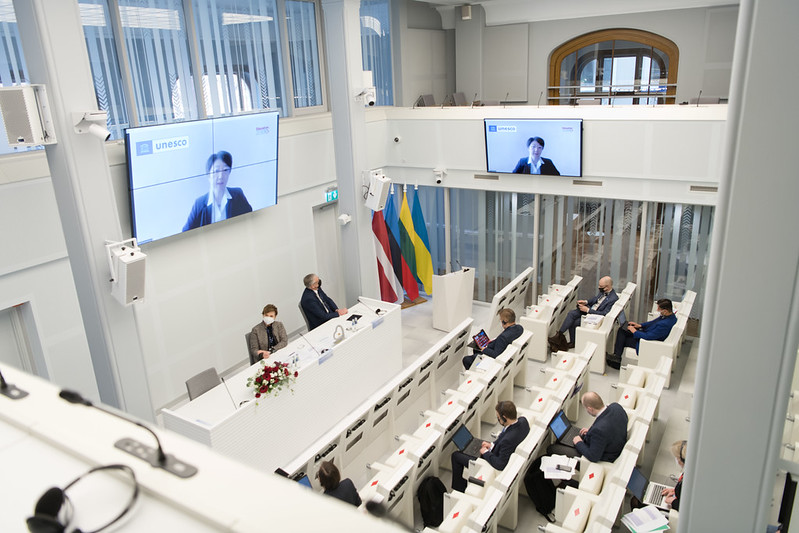
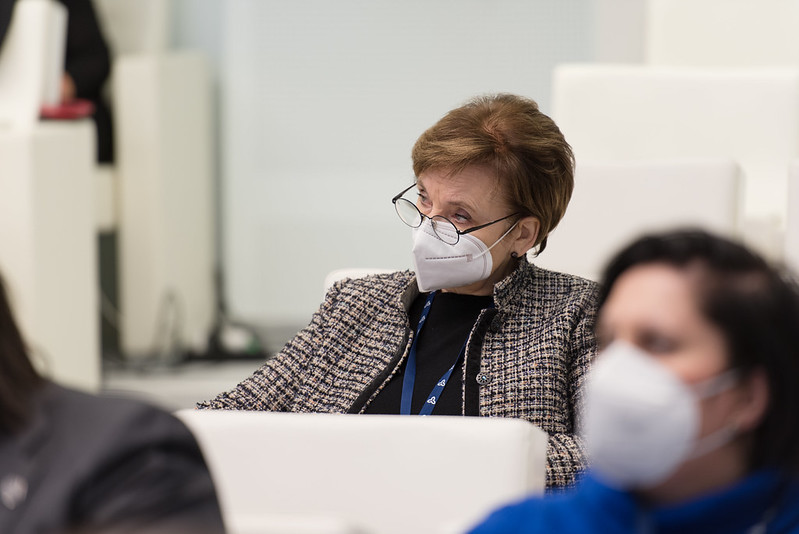
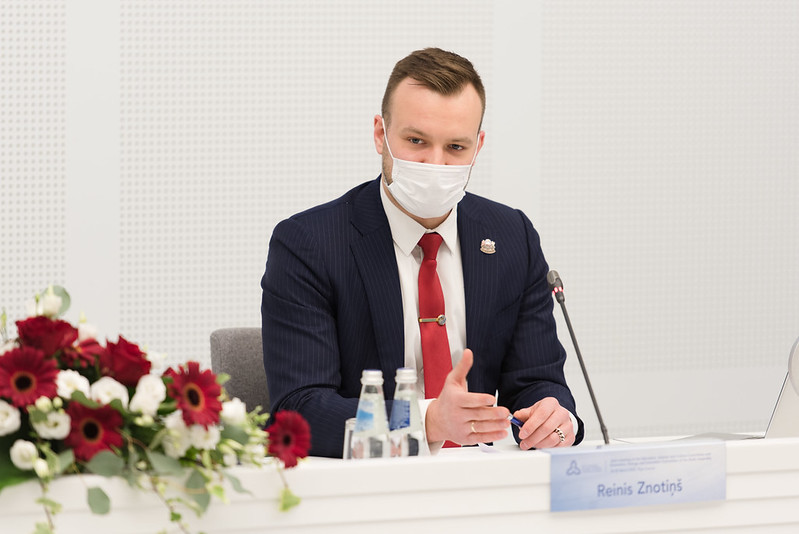
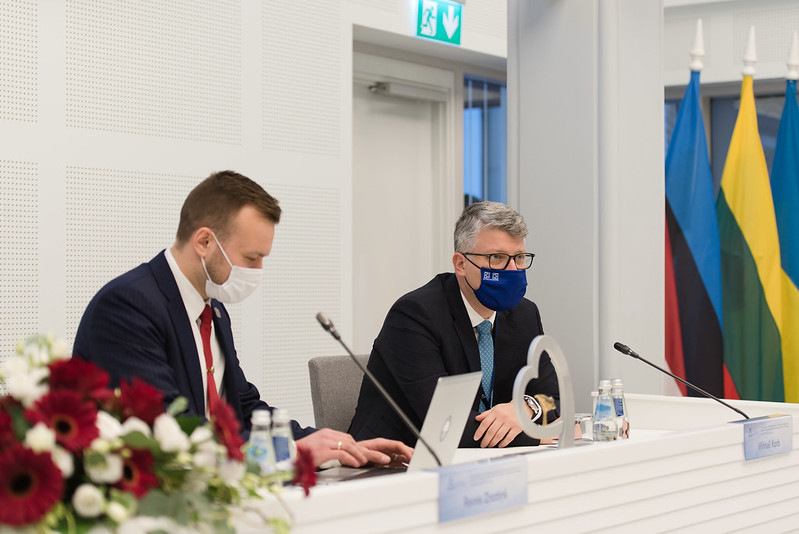
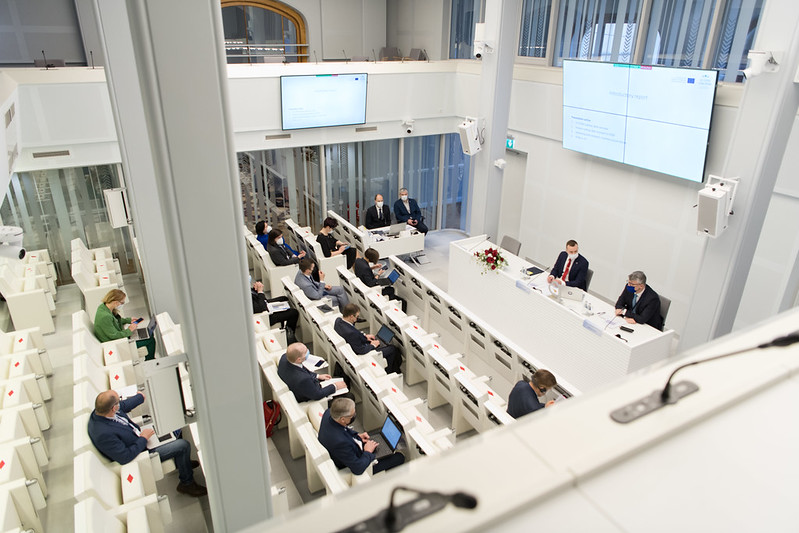
 Print
Print 

